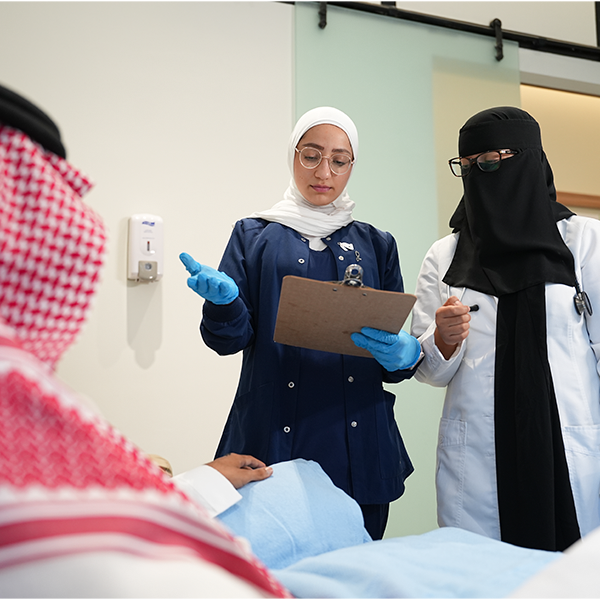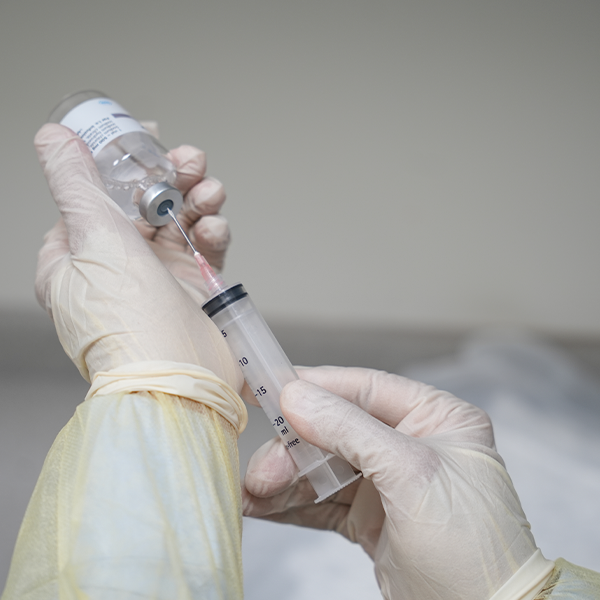Autoimmune and inflammatory diseases affect millions of people worldwide, often silently, progressively, and with significant impact on daily life. For patients navigating these conditions in Saudi Arabia, IV therapy is gaining recognition as a supportive tool in reducing symptoms and improving resilience.
At IV One, a trusted infusion centre in Riyadh, we specialize in the safe and professional administration of IV infusions based on your physician’s referral. In this article, we explore the science behind intravenous therapy for autoimmune and inflammatory diseases and how it may support your quality of life.
What Are Autoimmune and Inflammatory Diseases?
An autoimmune disease occurs when the body’s immune system mistakenly attacks its own cells and tissues. This can result in long-term inflammation, organ dysfunction, and recurring symptoms that can be difficult to manage.
Common autoimmune disease symptoms include chronic fatigue, joint or muscle pain, digestive issues, rashes or skin sensitivity, and brain fog or difficulty concentrating.
Types of Autoimmune Diseases
These include rheumatoid arthritis (RA), lupus (SLE), multiple sclerosis (MS), Crohn’s disease, psoriasis, and Hashimoto’s thyroiditis.
Meanwhile, inflammatory diseases refer to any chronic condition marked by sustained inflammation, whether immune-related or not. These include gastric inflammatory disease, inflammatory bowel disease (IBD), and various vascular or musculoskeletal conditions.
How the Immune System Malfunctions in Chronic Disease
Normally, your immune system protects against infections and helps your body heal. In autoimmune conditions, however, this system becomes overactive or confused, attacking healthy tissues instead. This leads to chronic inflammation, progressive tissue damage, unpredictable flare-ups, and difficulty absorbing nutrients — all of which impact day-to-day wellbeing.How IV Therapy Supports Immune Modulation
Intravenous therapy works by delivering hydration, vitamins, minerals, or medications directly into your bloodstream, bypassing the digestive system for faster, more effective absorption.
When used alongside your doctor’s care plan, IV therapy can help replenish nutrients, support immune balance, improve cellular function, and reduce oxidative stress that may contribute to flare-ups.
This approach is known as immune system modulation, helping your body maintain more stable, regulated immune responses.
Understanding IV Biologics for Autoimmune Disorders
In some cases, a specialist may prescribe IV biologics, advanced immune-modulating medications that are administered intravenously.
These drugs target specific inflammatory pathways, block immune signals that cause tissue damage, and reduce the severity and frequency of autoimmune flare-ups.
Common biologic medications administered via IV include infliximab, rituximab, tocilizumab, and adalimumab (IV formulation). These are frequently used in conditions such as Crohn’s disease, rheumatoid arthritis, and multiple sclerosis.

What Happens During an IV Infusion
When you visit IV One, you’ll begin with a quick pre-infusion check by a registered nurse. The infusion is then administered in a private, comfortable suite while your vital signs are continuously monitored. Most sessions last anywhere between 30 minutes to several hours, depending on your prescribed treatment. Post-infusion, our team provides hydration and follow-up support as needed.
The Benefits: Why Patients Choose IV Therapy
Many patients report reduced fatigue, improved mental clarity, fewer flare-ups, and better overall energy after incorporating IV therapy into their chronic care plans. For those managing complex autoimmune diseases, this added layer of support can make daily life more manageable and less unpredictable.
Risks & Considerations of IV Therapy
IV therapy is generally well tolerated when administered properly. Potential side effects may include mild bruising or discomfort at the injection site, a cold sensation during the infusion, or in rare cases, an allergic reaction. This is why treatment should always be administered in a licensed clinical environment like IV One, where strict protocols and trained medical staff ensure your safety.

Insurance & Cost of IV Therapy in Saudi Arabia
The cost of IV infusion therapy for autoimmune or inflammatory conditions depends on the treatment type, frequency, and your insurance coverage. Many private insurers in Saudi Arabia provide full or partial coverage for IV therapy if prescribed by a specialist. IV One supports patients with insurance verification, pre-approvals, and claims documentation, helping make the process as seamless as possible.
Why Choose IV One in Riyadh
IV One offers a dedicated, clinical environment for the safe administration of prescribed IV therapies. Our team specializes in IV biologics and immune support infusions, with an emphasis on patient comfort, education, and privacy. Whether you’re managing one condition or multiple diagnoses, we’re here to support your infusion journey with professionalism and care.
Frequently Asked Questions
Q: What is an autoimmune disease?
Q: What are common autoimmune disease symptoms?
Q: Can IV therapy help autoimmune conditions?
Q: How do IV biologic drugs work?
A: At IV One, you’ll receive care in a sterile, calm environment with professional monitoring and post-infusion support.
Q: What happens during an IV infusion?
A: Many private insurance providers offer coverage for IV therapy when it’s part of a prescribed care plan. We can assist with claims and pre-approvals.
Q: Is IV therapy covered by insurance?
A: IV One is located in Riyadh and offers specialized support for patients receiving doctor-prescribed IV infusions.
Support Your Immune Health with Confidence
If you’ve been prescribed IV therapy for autoimmune or inflammatory conditions, IV One in Riyadh is here to provide expert, compassionate care. From biologics to immune-support infusions, we help make your treatment experience safe, efficient, and personalised.Contact us today to schedule your appointment or speak with our team about insurance support.


